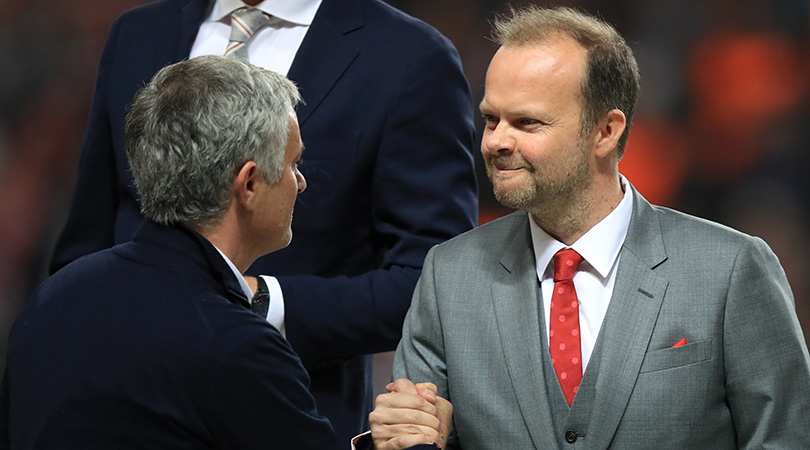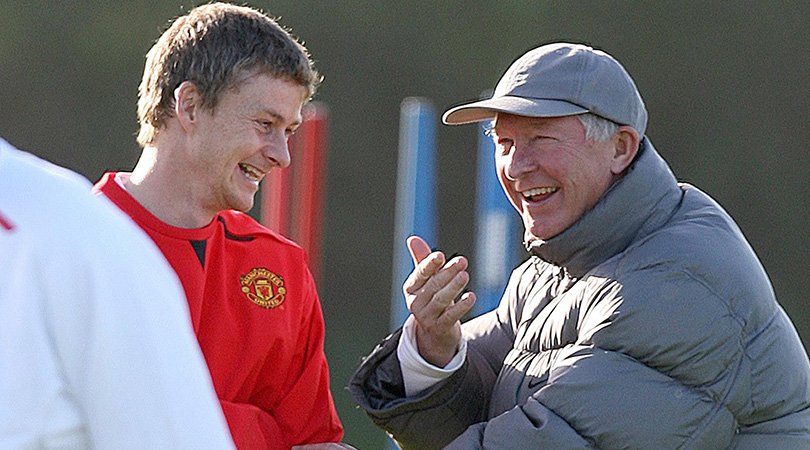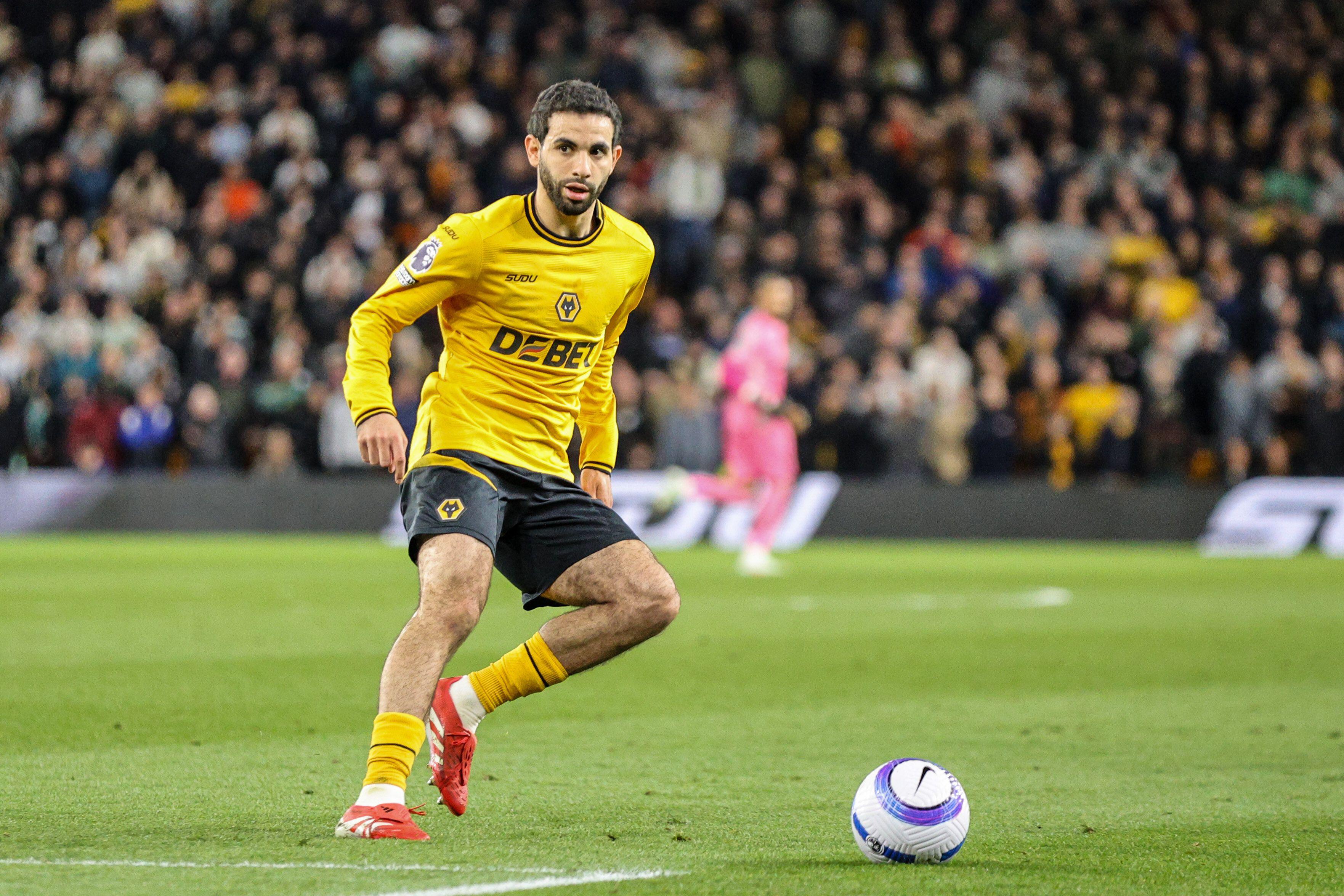What if Ole Gunnar Solskjaer does *too* well at Manchester United?
It's so far, so very good for Ole at Old Trafford – but could too much of a good thing lead United astray in the summer? Seb Stafford-Bloor ponders...
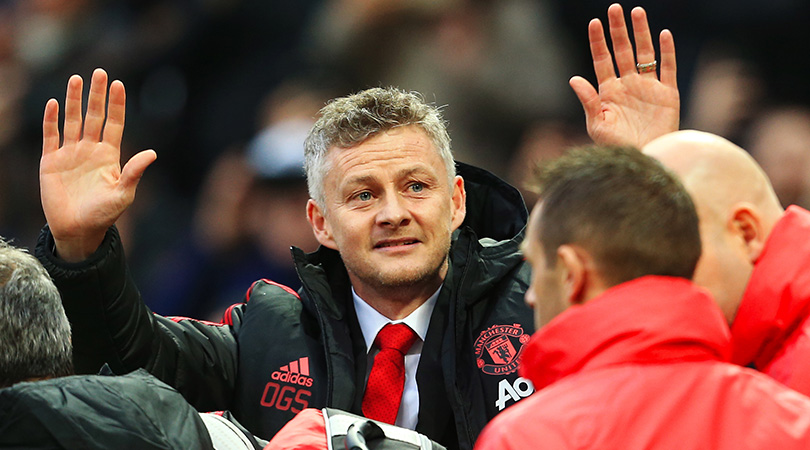
All is well at Manchester United. Or at least all is calm. During his final months, Jose Mourinho drew the curtains on the club, and who really knows what happened in that darkness?
Whatever the cause or effect, life was not good at Old Trafford and the team’s form sagged under the weight of all that acrimony.
But now the windows have been flung open and cold, refreshing air is rushing through the corridors again. Ole Gunnar Solskjaer has had the desired effect: Cardiff, Huddersfield and Bournemouth were all beaten handsomely, Newcastle were held at arm’s length at St James’ Park and, most recently, a place in the fourth round of the FA Cup has been booked.
On Sunday, to complete the next stage of their recovery, United will head to Wembley to face Tottenham, hunting the kind of statement victory which would add some body to the renaissance.
Ole vs Poch
It will also put Solskjaer in direct opposition against the head coach who his bosses intend to replace him with. Come the end of the season, Ed Woodward is expected to gather up the gold and head for north London.
Whether Mauricio Pochettino can be bought remains to be seen, but both he and Solskjaer will be aware of Sunday’s symbolism. It won’t really mean anything long-term – football doesn’t work like that – but the pre-game vignette, replete with wandering expressions and a backing ballad, directs itself.
Get FourFourTwo Newsletter
The best features, fun and footballing quizzes, straight to your inbox every week.
But what if this goes too well? Solskjaer was appointed for his emotional resonance, and the historic connection between United and Molde would have made this unusual loan easier to complete, but his place on the interim shortlist also depended on his status within his profession.
While Mourinho had been busy complicating his own legacy, the world had forgotten about Ole Gunnar Solskjaer. Not the player, whose stabbing touch in the Camp Nou remains on regular rotation, but the head coach; the mess at Cardiff City checked whatever momentum he had, and it has been many years since his name was linked with a notable vacancy.
BIG INTERVIEW Ole Gunnar Solskjaer – "At first I wasn’t mean enough. My teams weren’t solid – now I’ve learned a lot"
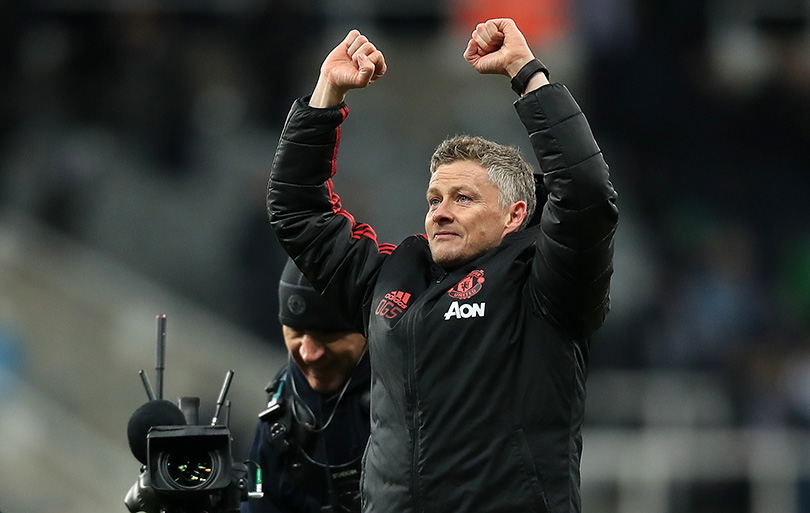
Knowing his place
Manchester United’s risk assessment probably wasn’t overly scientific. In Solskjaer, they identified someone with sound local knowledge, who would be treated with reverence by the supporters and polite respect by the players. Perhaps most crucially, he would also leave his keys on the desk and hoover his own carpet at the end of May.
He was to be a placeholder: capable enough to gently correct the trajectory, but also of lowly enough status to know his place and not make a fuss while the serious business of his succession was being plotted in the background.
Game by game, that’s starting to change. From Solskjaer’s perspective, of course it is. Managing Manchester United is an opportunity which he must have assumed was beyond him before December 2018, and yet here he is, hearing his name being sung at Old Trafford and working with some of the finest players in the world. It’s hardly a surprise that now, whenever he’s asked about his future, he’s less than coy in insinuating that yes, deep down, he would rather like the job on a permanent basis.
Which would be fine if it weren’t for the mess it could potentially create. Already, small pockets of support have started to gather behind Solskjaer and the crowd, gently, is becoming more attached to the symbolism he embodies. It’s understandable, but at the same time predicated on a false premise.
Time will tell
For now, Solskjaer is succeeding by not being Jose Mourinho. Over the course of the Portuguese’s two-and-a-half year reign, United’s squad was contorted and teased, bullied and battered. The relief brought about by his sacking alone was always likely to manifest in expressive and energised football.
It’s a nebulous situation which is difficult to interpret. While Solskjaer is owed acknowledgement for diagnosing malignant issues at Carrington and quickly remedying them, it’s impossible to know whether he is the true instigator of United’s form.
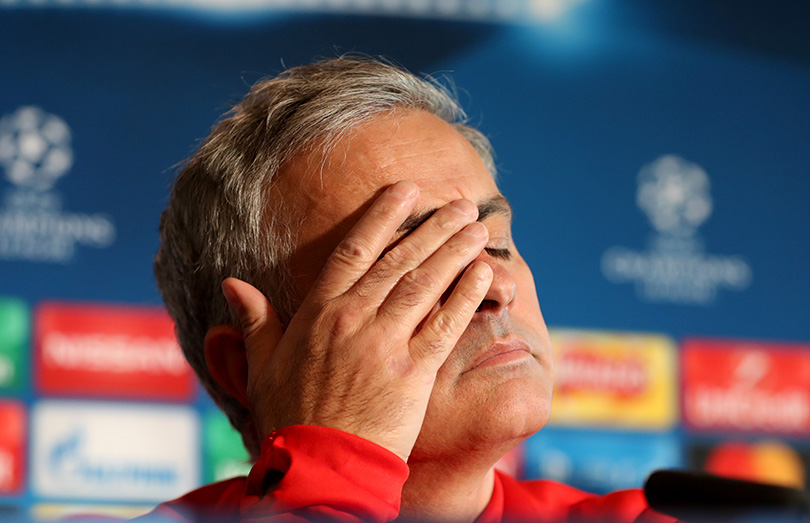
For the moment, it isn’t actually important. For now, it only matters that they play better, that they score goals, and that those who follow the side around the country feel fulfilled in their pursuit. But the longer this run continues and the more substantial Solskjaer’s effect is seen to be, the more complicated the club’s next steps will invariably become.
Beyond a certain point, once Manchester United’s positive results reach critical mass, Solskjaer will become credible. At which point, what basis will there be for judging his full-time credentials? Conversely, what reason would there be to dismiss them?
It creates a very difficult situation for Woodward. It’s feasible, for instance, that Solskjaer’s performance will merit further employment, but ultimately for hollow reasons. Healing is not a permanent virtue and, theoretically, United could walk themselves headfirst into a Roberto Di Matteo conundrum. It’s been six years since Roman Abramovich, probably against his better judgement, bowed to those prohibitive dynamics – but it remains the pre-eminent caveat within this type of situation.
Abramovich needed a proper successor to Andre Villas-Boas, but surrendered to the people’s choice. Once that powerful group of Chelsea seniors had grown tired of running their own asylum, Di Matteo was a lame duck. He limped on until November 2012, by which time Chelsea had fallen out of the title reckoning and Champions League group stage, and the club were left in a loveless embrace with Rafael Benitez. In essence, they condemned themselves to further limbo.
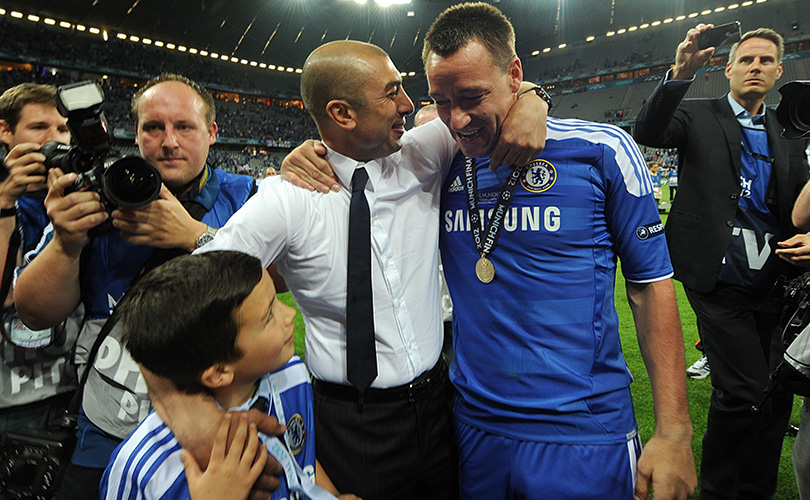
No guarantees
There probably isn’t a Champions League in Manchester United’s immediate future – PSG will likely see to that – but the circumstances are still comparable.
First and foremost, Woodward will surely recognise that he’s dealing now with an icon of the club’s recent past; someone who is not only reflexively associated with the greatest night in their history, but who also draws his reputation from the warmth of their most decadent era. The PR cost of slaying him, for what could be the illusory promise of an outsider, would be enormous.
And it is illusory promise, too. No managerial appointment ever comes with any certainty, and while it’s possible to gaze upon Pochettino’s progress at Tottenham, or Zinedine Zidane’s trophies at Real Madrid, convincing arguments could be made in each case to claim that neither are really built for the role. If Solskjaer is able to maintain the form United have shown until this point, how much patience is really going to exist for a successor if he’s then shunted aside?
For any supporter of any club, the allure of a former player restoring the side is very powerful. But it’s also dangerous and, in this case, increasingly so. With every victory, the ideal of Solskjaer becomes more seductive and the process of moving on from him becomes that much harder.
Woodward needs morale to life and the mood to change – but just not too much.
SEE ALSO In praise of... Ed Woodward? How the Manchester United chief has redeemed himself – for now
Seb Stafford-Bloor is a football writer at Tifo Football and member of the Football Writers' Association. He was formerly a regularly columnist for the FourFourTwo website, covering all aspects of the game, including tactical analysis, reaction pieces, longer-term trends and critiquing the increasingly shady business of football's financial side and authorities' decision-making.
